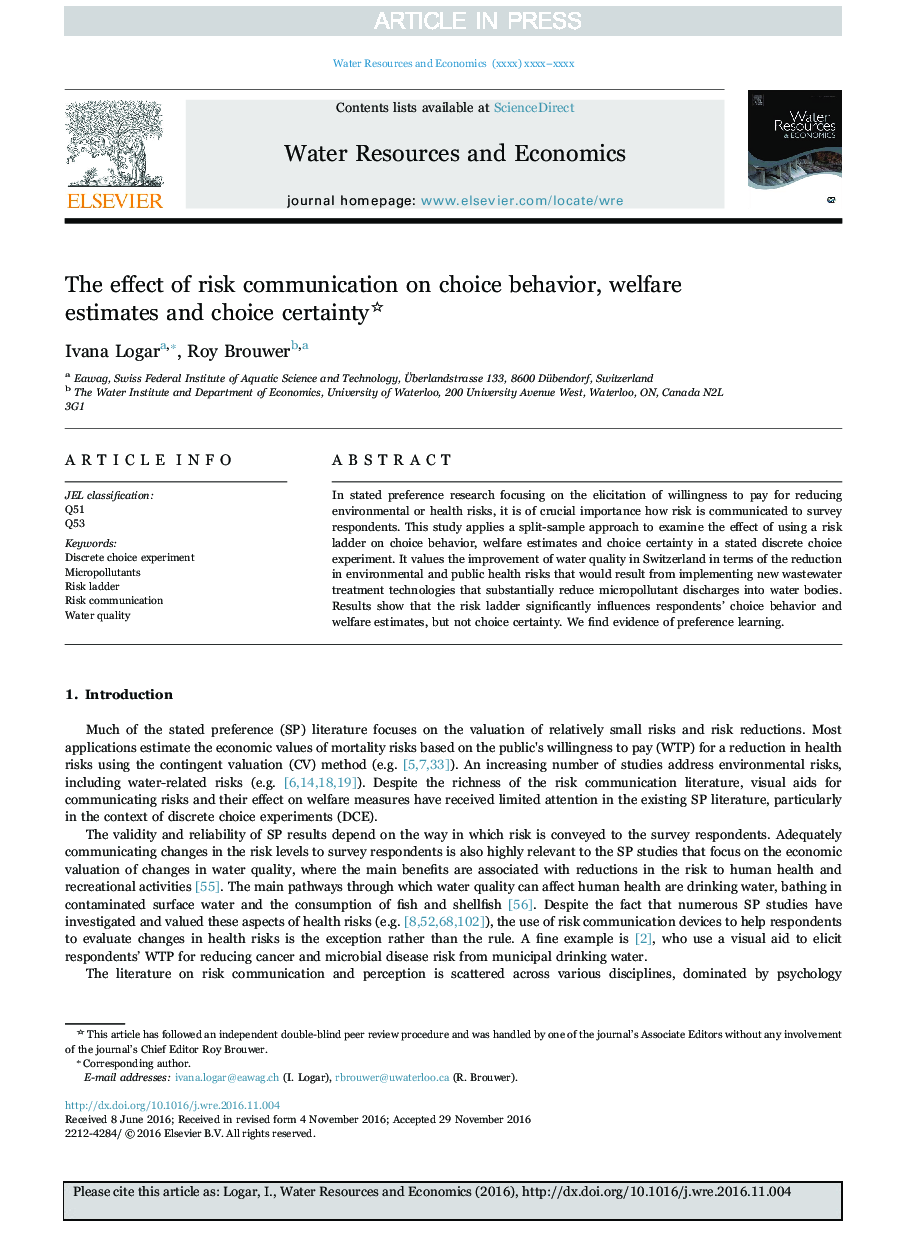| Article ID | Journal | Published Year | Pages | File Type |
|---|---|---|---|---|
| 5104952 | Water Resources and Economics | 2017 | 17 Pages |
Abstract
In stated preference research focusing on the elicitation of willingness to pay for reducing environmental or health risks, it is of crucial importance how risk is communicated to survey respondents. This study applies a split-sample approach to examine the effect of using a risk ladder on choice behavior, welfare estimates and choice certainty in a stated discrete choice experiment. It values the improvement of water quality in Switzerland in terms of the reduction in environmental and public health risks that would result from implementing new wastewater treatment technologies that substantially reduce micropollutant discharges into water bodies. Results show that the risk ladder significantly influences respondents' choice behavior and welfare estimates, but not choice certainty. We find evidence of preference learning.
Related Topics
Life Sciences
Agricultural and Biological Sciences
Aquatic Science
Authors
Ivana Logar, Roy Brouwer,
